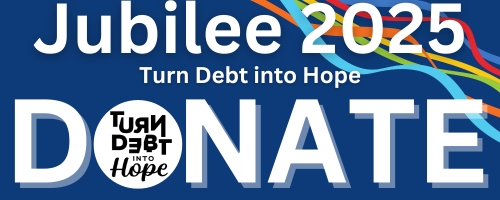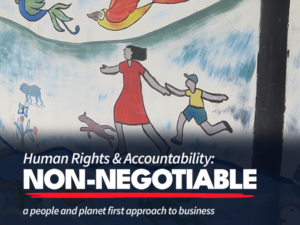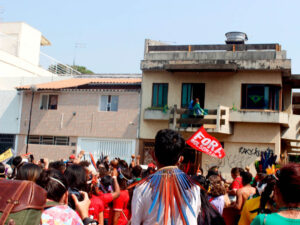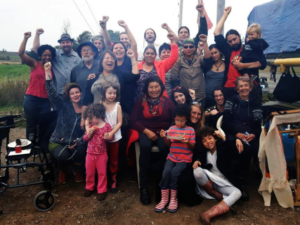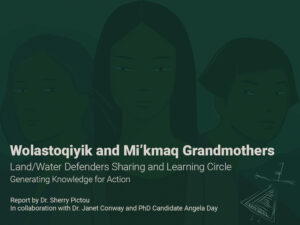Mother Earth and Resource Extraction (MERE Hub)
Mother Earth and Resource Extraction stands with women human rights defenders and recognizes both their achievements and the challenges they face in the protection of land and water. Along these lines, the hub is a component of a community-based research project on resource extraction in Canada being undertaken by KAIROS: Canadian Ecumenical Justice Initiatives and Sherry Pictou, Assistant Professor of Women’s Studies at Mount Saint Vincent University, in collaboration with Indigenous women. Mother Earth and Resource Extraction is also part of KAIROS’ programming on the gendered impacts of resource extraction.
Gendered Impacts of Resource Extraction at KAIROS
In 2014, KAIROS: Canadian Ecumenical Justice Initiatives and Horizons of Friendship organized a delegation of eight Indigenous women from Canada, the Philippines, and Central America to attend the 13th session of the United Nations Permanent Forum on Indigenous Issues (UNPFII) in New York. Titled “Honouring Indigenous Women’s Wisdom,” the delegation came together at meetings, panels, and roundtable discussions to highlight not only the gendered impacts of resource extraction on Indigenous communities but also Indigenous women’s role in protecting the environment and collective rights.
Since then, KAIROS works in partnership with women land and water defenders, primarily Indigenous women and organizations in Canada and the Global South, to:
- make visible the impacts of resource extraction on Indigenous women;
- draw attention to Indigenous women’s work in the defense of community rights and the environment;
- press for Indigenous women’s recognition as key policy stakeholders and decision-makers—through mechanisms such as Free, Prior, and Informed Consent (FPIC) and as stipulated by the UN Declaration on the Rights of Indigenous Peoples; and
- advocate for corporate accountability of the Canadian extractive sector operating abroad.
KAIROS collaborates with members of the Gendered Impacts Reference Group (GIRG), a loose collective of predominantly Indigenous women who have come together around this work to monitor and research the social, environmental, economic, and health impacts of resource extraction on women and to develop collective strategies, policy, and advocacy positions on the issue. As convener of GIRG, KAIROS facilitates south-south and south-north exchanges, shares resources, and enables collective analysis and policy development.
KAIROS’ focus on resource extraction dates further back than 2014. In 2013, for example, KAIROS participated in a study tour to Guatemala sponsored by the Mining the Connections Working Group of the Maritime Conference of the United Church of Canada, which focused on the social, health, environmental, and spiritual impacts of Canadian mining companies in Guatemala and El Salvador. The Guatemala study tour served as a follow-up to the Ecumenical Mining Conference that took place in Toronto in 2011.
Since the inception of this work, land and water defenders who have participated in symposia, gatherings, and delegations have been calling for an information hub that brings together original and existing material to support research, advocacy, information sharing, and movement building around the subject of resource extraction and its gendered implications. These are the origins of Mother Earth and Resource Extraction: Women Defending Land and Water, MERE, a digital resource hub created for and in consultation with women land and water defenders.
The hub brings together a range of original and existing material to support research, advocacy, information sharing, and movement building around the subject of resource extraction and its gendered implications.
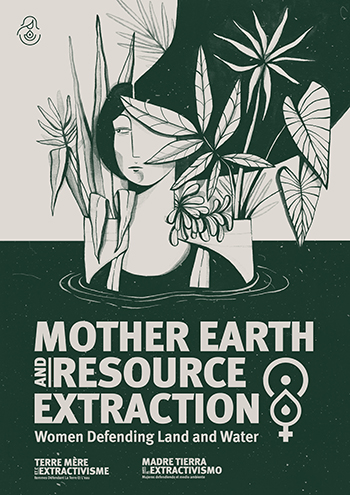
Poster for MERE Hub designed by Sofia Acosta
